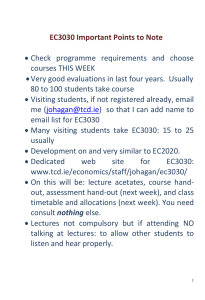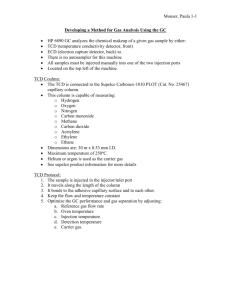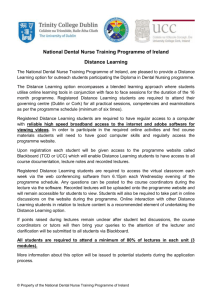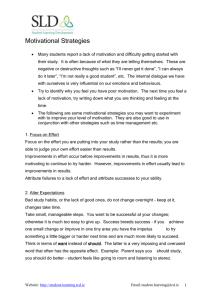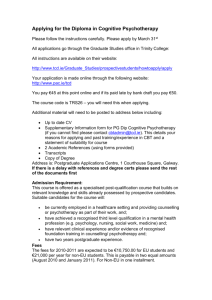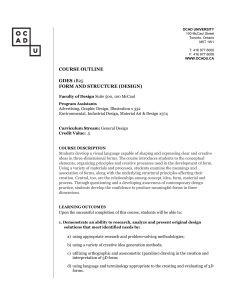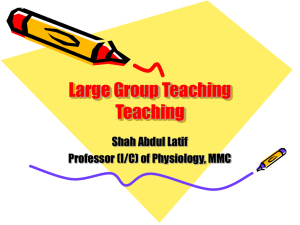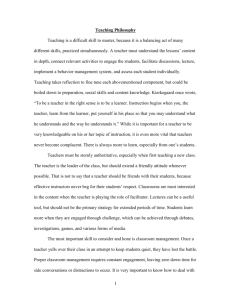1E8 Introduction to Professional Engineering
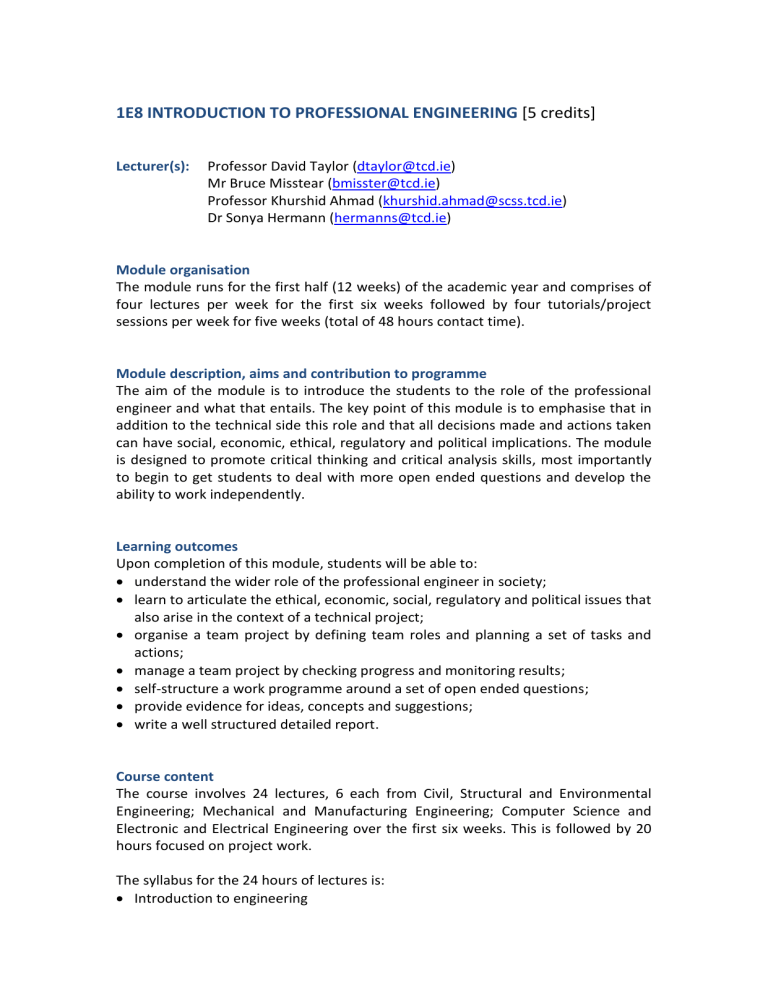
1E8 INTRODUCTION TO PROFESSIONAL ENGINEERING [5 credits]
Lecturer(s): Professor David Taylor ( dtaylor@tcd.ie
)
Mr Bruce Misstear ( bmisster@tcd.ie
)
Professor Khurshid Ahmad ( khurshid.ahmad@scss.tcd.ie
)
Dr Sonya Hermann ( hermanns@tcd.ie
)
Module organisation
The module runs for the first half (12 weeks) of the academic year and comprises of four lectures per week for the first six weeks followed by four tutorials/project sessions per week for five weeks (total of 48 hours contact time).
Module description, aims and contribution to programme
The aim of the module is to introduce the students to the role of the professional engineer and what that entails. The key point of this module is to emphasise that in addition to the technical side this role and that all decisions made and actions taken can have social, economic, ethical, regulatory and political implications. The module is designed to promote critical thinking and critical analysis skills, most importantly to begin to get students to deal with more open ended questions and develop the ability to work independently.
Learning outcomes
Upon completion of this module, students will be able to:
understand the wider role of the professional engineer in society;
learn to articulate the ethical, economic, social, regulatory and political issues that also arise in the context of a technical project;
organise a team project by defining team roles and planning a set of tasks and actions;
manage a team project by checking progress and monitoring results;
self-structure a work programme around a set of open ended questions;
provide evidence for ideas, concepts and suggestions;
write a well structured detailed report.
Course content
The course involves 24 lectures, 6 each from Civil, Structural and Environmental
Engineering; Mechanical and Manufacturing Engineering; Computer Science and
Electronic and Electrical Engineering over the first six weeks. This is followed by 20 hours focused on project work.
The syllabus for the 24 hours of lectures is:
Introduction to engineering
Environmental issues in engineering
Engineering ethics
Engineering forensics
Physical and cyber sustainability
Group interaction and team collaboration
Trend identification
Teaching strategies
This module will be taught using traditional lectures for the first six weeks. In the last five weeks, students will work in groups to self-structure their agendas and workloads.
Associated laboratory/project programme
In the second half of the semester, the class will be split into small groups and each group will have to produce a significant report broadly related to the City of the
Future – Dublin 2030. The purpose of the project is to give the teams the opportunity to explore the City of the Future in a multi-dimensional way.
Assessment
Assessment of this module is 100% based on the project.
Required textbook
There will be a very wide range of recommendations and they will be provided during the lectures.
![1E8 Introduction to Professional Engineering [5 credits]](http://s2.studylib.net/store/data/018162084_1-83cab5fc002af50c40c56f218f9db465-300x300.png)
